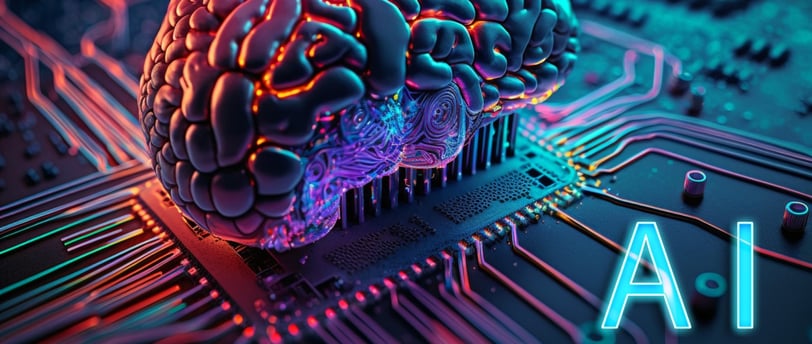The Impact of Artificial Intelligence on Modern Gaming
ARTICLES
Verifi
6/14/20243 min read


Artificial intelligence (AI) is becoming a key factor in how the game business is developing. AI has a significant and wide-ranging impact on everything from player experiences to game design and development. The use of AI in games is creating new opportunities and norms for what gamers can anticipate from their interactive entertainment as technology develops.
AI in Game Design: Crafting Smarter Environments
AI's influence on game design is among its most notable effects on the gaming industry. AI-powered algorithms are able to create vast, complex gaming worlds that change based on what the user does, making every gameplay experience different. In order to build expansive, dynamic worlds, procedural generation—a technique made popular by games like "No Man's Sky" and "Minecraft"—heavily relies on AI. By automating the process of creating game content, this not only increases replayability but also lessens the effort for developers.
Creating intelligent non-player characters (NPCs) requires AI as well. NPC behavior in the past was frequently planned and predictable, but AI has made it possible for NPCs to display more nuanced, human-like behaviors. NPCs carry out daily tasks, respond to player activities, and make judgments based on predetermined criteria in games such as "The Elder Scrolls V: Skyrim" and "The Witcher 3: Wild Hunt," which contribute to the creation of a more realistic and immersive environment.
Enhancing Player Experience: Personalization and Adaptation
AI makes gameplay more personalized, which improves player experiences. One good example is adaptive difficulty, in which the level of difficulty in the game changes according to the player's ability. AI Director technology is used in games like "Left 4 Dead" to adjust the level of difficulty in real-time, keeping players continually interested and never feeling too or underly challenged.
Furthermore, recommendation algorithms driven by AI make recommendations for new games based on the tastes and gameplay histories of users. Artificial intelligence (AI) is used by platforms such as Steam and PlayStation Store to evaluate user activity and suggest games that suit personal preferences, thus increasing user pleasure and engagement.
AI in Game Development: Streamlining Processes
AI is revolutionizing the game production process, increasing its inventiveness and efficiency. Artificial intelligence (AI)-powered automated testing can find errors and problems more quickly than human testers, thereby cutting down on the amount of time needed for quality control. AI algorithms can also help with character animation, producing lifelike motions and facial emotions that would take a lot of effort to produce by hand.
Moreover, AI-powered analytics give creators insightful knowledge about player behavior. Developers may find popular features, learn how players engage with their games, and suggest areas that want improvement by analyzing data. Better-designed games and more informed decision-making are made possible by this data-driven methodology.
The Future of AI in Gaming: Emerging Trends
With multiple new trends destined to completely transform the gaming business, artificial intelligence's future appears bright. The creation of AI companions—characters that mature and learn alongside the player—is one such trend. AI partners in games like "The Last Guardian" and "BioShock Infinite" display complex behaviors and emotional depth, which improves player interaction and the story.
The use of AI in augmented reality (AR) and virtual reality (VR) games is another fascinating advancement. The entire VR and AR experiences can be improved by using AI to build more responsive and engaging virtual environments. We may anticipate increasingly more lifelike and captivating interactions in these new platforms as AI technology develops.
Conclusion
Modern gaming has made artificial intelligence a pillar, spurring innovation and improving player experiences. AI is having a significant impact on every aspect of the industry, from simplified production processes and tailored suggestions to intelligent NPCs and adaptable difficulty. The development of AI technology has the possibility of opening up new avenues and raising the bar for interactive entertainment, making games more engaging and dynamic than in the past.
